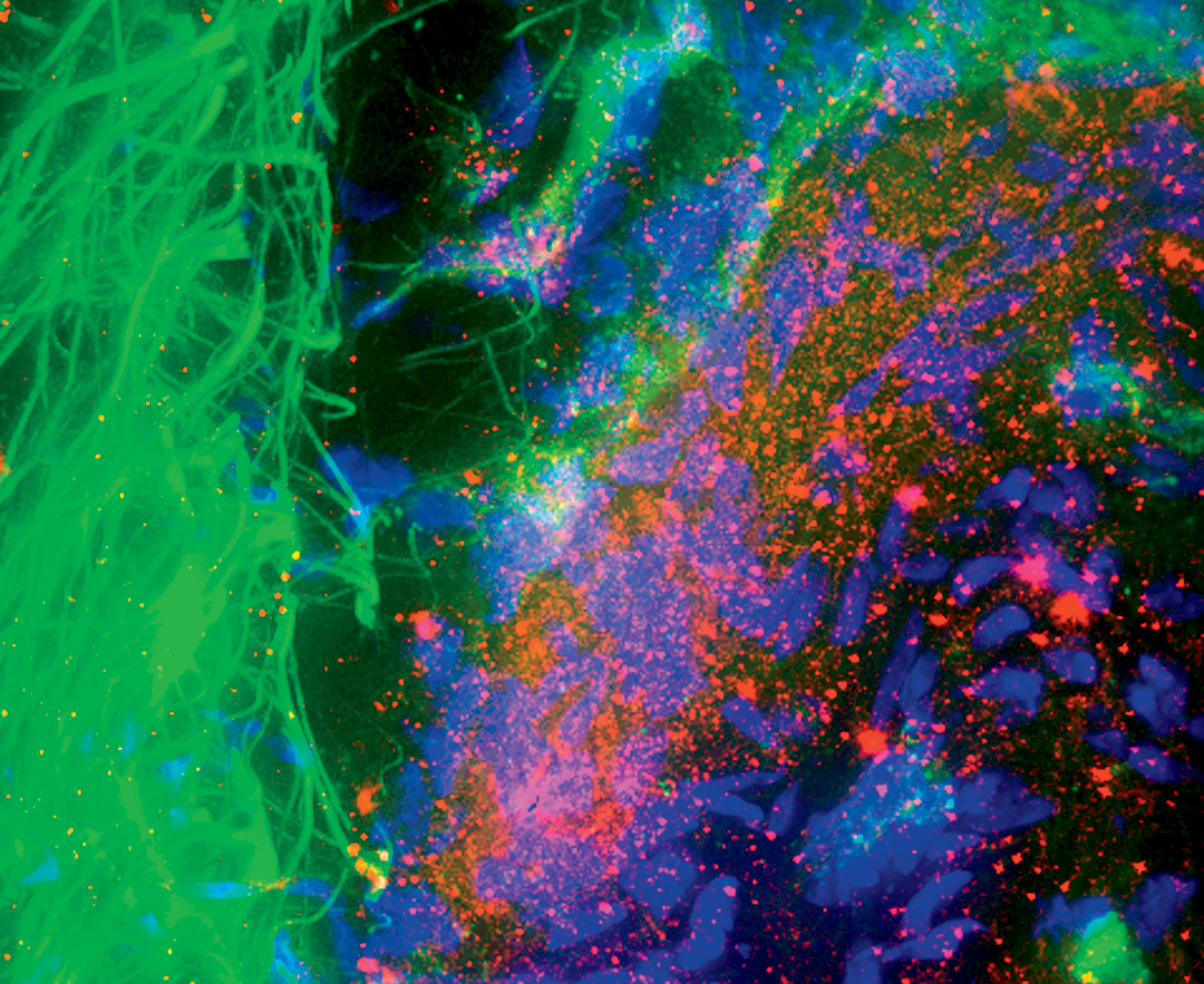Scientists have found the first solid evidence that a malfunctioning immune system contributes to Parkinson’s disease, a neurodegenerative movement disorder that affects ten million people worldwide.
“This idea dates back almost a hundred years,” says study co-leader David Sulzer ’88GSAS, a professor of neurobiology in the departments of psychiatry, neurology, and pharmacology at Columbia University Medical Center. “But until now, no one has been able to connect the dots.”
Sulzer and several colleagues, including Alessandro Sette of the La Jolla Institute for Allergy and Immunology in La Jolla, California, conducted a series of experiments in which they introduced fragments of a protein called alpha-synuclein, which is present in all brain cells, to blood samples drawn from sixty-seven Parkinson’s patients and thirty-six healthy people. The scientists observed that in the blood drawn from Parkinson’s patients, white blood cells called T cells, which are the immune system’s attack dogs, rushed out to annihilate the protein fragments as if they were viruses or bacteria.
Sulzer and Sette say that their findings, which appear in the journal Nature, suggest that Parkinson’s disease may arise when an overactive immune system wages war on alpha-synuclein and inadvertently kills large numbers of brain cells in the process. The destruction of brain cells is the ultimate cause of Parkinson’s, resulting in tremors, paralysis, and eventually death.
“It remains to be seen whether the immune response to alpha-synuclein is an initial cause of Parkinson’s, or if it contributes to neuronal death after the onset of the disease,” says Sette. “But our findings raise the possibility that immunotherapy could be used to increase the immune system’s tolerance for alpha-synuclein, which could help Parkinson’s patients.”



